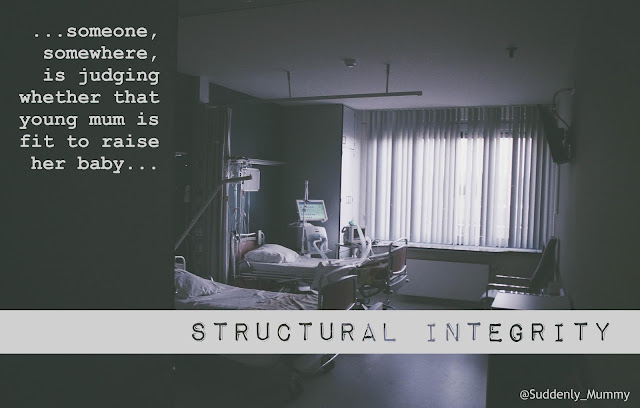Dear Prospective Foster Carer...
At some point during the coming year I will be speaking to you around lunchtime of one of the long, gruelling days of your Skills to Foster training. You will be there, expectant, maybe unsure, head reeling from what you have just heard about safeguarding or attachment or health and safety or whatever. I will be attempting to encapsulate what I have learned from four years of fostering into a short talk that enthuses you without exaggerating, and is honest without being off-putting.
The truth is that what you are likely to hear from me will probably be heavily influenced by the week I will have just had. Fostering is quite the roller coaster. If you were to hear from me tomorrow, you would likely hear:
If I saw you tomorrow I might tell you all of that. On another day I might wax lyrical about the joy of seeing a scared little one come out of their shell, or the immense pride you feel when you see a child overcome huge barriers to make progress in their development, or the bittersweet thrill of being there at the creation of a new forever family.
You should know that fostering is not for the faint-hearted. Some days you will feel annoyed at the world, unappreciated, forgotten and misunderstood. Other days will bring elation, laughter, fun and total fulfilment. Some will say that you are part of the problem. Others will call you a hero. Neither will really be true.
But despite all of that, and regardless of my mood on the day, I think I would want to say this:
The truth is that what you are likely to hear from me will probably be heavily influenced by the week I will have just had. Fostering is quite the roller coaster. If you were to hear from me tomorrow, you would likely hear:
- that while your supervising social worker may 'get' what you do, other social workers could well be oblivious, viewing you as little more than a babysitter, or a 'house with a spare bed'
- that this will result in a staggering lack of appreciation of the impact that their last-minute arrangements and hurried changes of plan can have on you and your family
- that, since you really are quite low in the food chain when it comes to care proceedings, the one-word apology, however carelessly spoken, that would have made you feel at least appreciated, will probably not come
- that you will be public property with everyone having an opinion about what you do, from professionals to people you have never even met, including opinions on how you care for the children, the shoes and clothes they wear, your behaviour management, how you spend your own money, the cleanliness of your bathroom, and pretty much anything else you can think of
- that you will be constantly frustrated that all the hard work you do, all the planning, meetings, goal-setting, carefully-researched parenting, form-filling, contacts, training, nurturing and caring, will go mostly unseen by the hordes of people who apparently abhor the idea that fostering should in any way be seen as a 'job' and believe we should only do it out of 'altruism' (i.e. for nothing, as if we don't have to put food on the table like other people)
- that there will be periods of your life where you live in total limbo, unable to make plans, running to the phone every time it rings in case your life is about to be turned upside down by the arrival of a traumatised child
- that sometimes, after you have spent hours making arrangements and preparations, you will get another phone call telling you that it's all off, and you go back to the waiting
- that, when you do get the call, your heart will ache for all the people whose lives are about to be torn apart and you will face once again the conflict that your livelihood is their tragedy.
If I saw you tomorrow I might tell you all of that. On another day I might wax lyrical about the joy of seeing a scared little one come out of their shell, or the immense pride you feel when you see a child overcome huge barriers to make progress in their development, or the bittersweet thrill of being there at the creation of a new forever family.
You should know that fostering is not for the faint-hearted. Some days you will feel annoyed at the world, unappreciated, forgotten and misunderstood. Other days will bring elation, laughter, fun and total fulfilment. Some will say that you are part of the problem. Others will call you a hero. Neither will really be true.
But despite all of that, and regardless of my mood on the day, I think I would want to say this:






Brilliant post. Thank you. I doubt you have time to read books and only have time to be hands on- But do you know of any recommende books about fostering? I'd like to fully educate myself about what I'm hoping to jump into in the future whilst I have the time in life to read books! Thank you.
ReplyDeleteMmmmm, well, you're right, I haven't read many books about it. In fact I haven't read any specifically about fostering, but I have read a few about parenting children who have suffered early life trauma (mainly aimed at adopters) that you might like, especially 'No Matter What' and 'The Unofficial Guide to Adoption' by Sally Donovan, and 'Why Can't My Child Behave?' by Amber Elliot. I've also heard that 'Hackney Child' by Hope Daniels is excellent - I've got a copy but haven't managed to read it yet. I'm just reading 'The Connected Child' (can't remember author) which is pretty good so far. Hope that helps :-)
DeleteI enjoyed this post thanks for sharing.
ReplyDelete